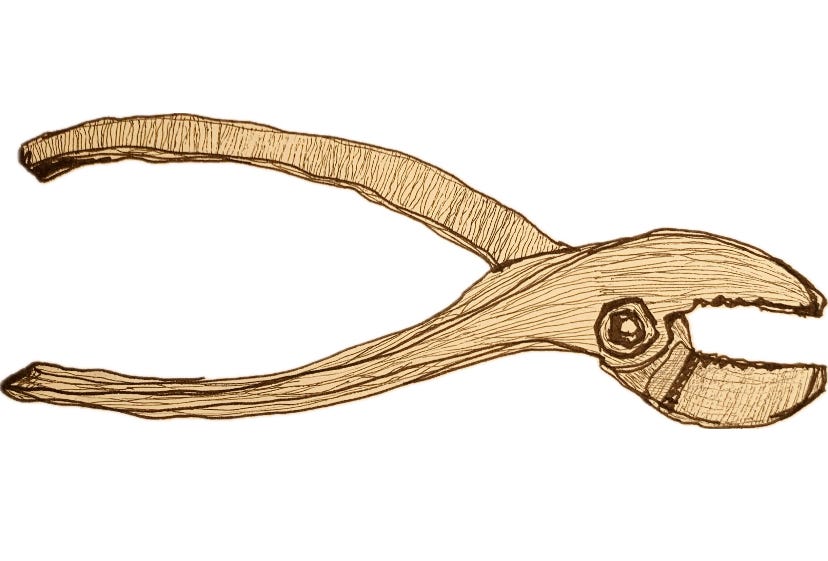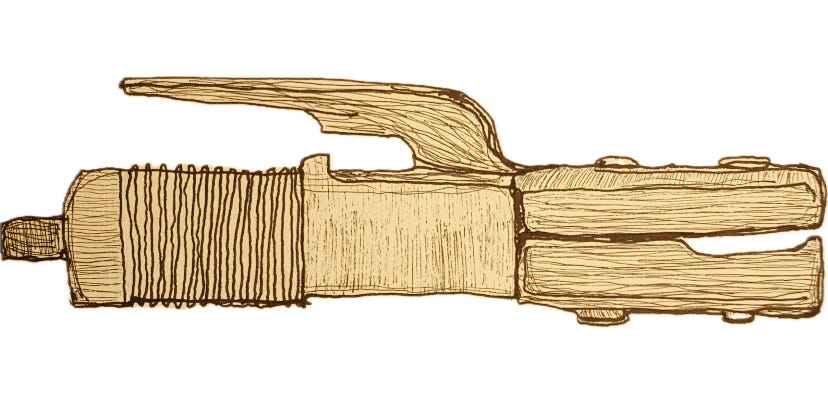For the next few months I’ll be working in the mechanic’s shop at school as an assistant. (Me who knows nothing about cars! Me who two days ago didn’t know the difference between a Phillips and a flathead screwdriver!) But I’ve learned so much in just a few days—how to drive stick, jumpstart a car, charge a battery, change the oil and filter, inflate tires, assemble welding tools from a manual. Touching this equipment and making something work again has made me feel more involved in the world, as Heidegger would say. I thought a lot about the mech shop during the last reading of Being and Time I had to do…
“The kind of dealing which is closest to us is as we have shown, not a bare perceptual cognition, but rather that kind of concern which manipulates things and puts them to use; and this has its own kind of knowledge.”
“Equipment is essentially ‘something in-order-to. . .’ [‘etwas um-zu. . .’]. A totality of equipment is constituted by various ways of the ‘in-order-to,’ such as serviceability, conduciveness, usability, manipulability.”
“The less we just stare at the hammer-Thing, and the more we seize hold of it and use it, the more primordial does our relationship to it become, and the more unveiledly is it encountered as that which it is—as equipment. The hammering itself uncovers the specific ‘manipulability’ [“Handlichkeit”] of the hammer.”
“The kind of Being which equipment possesses—in which it manifests itself in its own right—we call “readiness-to-hand” [“Zuhandenheit”].”
“The ready-to-hand is not grasped theoretically at all.”









